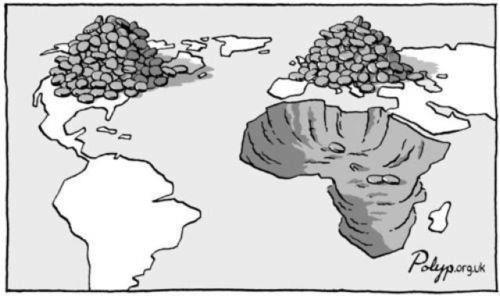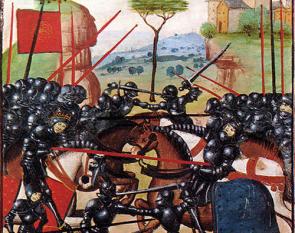Well, the Boy Scouts of America (BSA) have officially changed their policy prohibiting membership to openly gay boy scouts (which assumes, I suppose, that all boys between the ages of 10 1/2 years old and 18 years old have complete and final "sexual orientations").
I know this is being lauded by gay rights activists, and I am more than familiar with the rationale, given that I have closely followed the same struggle for full inclusion into the armed forces during and after a career in the Army. That's not what's on my mind today, however . . . the rationale for fighting for full entry into either the BSA or the United States Armed Forces. I'm more interested in what was "won" for those excluded and how that gets set aside from the advocacy for or opposition to full inclusion in both.
Tuesday, December 31, 2013
Sunday, December 22, 2013
duck dudes, tolerance, and trip wires
Been away for a while, as all five of you who read this blog may have noted.
I'm writing a book. A kind-hearted publisher decided to give me a shot at a book on gender, war, and Christianity. I was so excited at the prospect that I made crazy promises, like the one to deliver a manuscript (which is running at around 600 pages - or 450 in real book pages) by the Ides of March 2014. Nuts, I know, but sometimes deadline discipline is a Good Thing with someone who loves procrastination as much as I do. So that is where I've been . . . researching, writing, rewriting, re-researching, and when the neurons are fried, gazing blankly out at the bird feeders, reading crime novels, and watching television.
Sent a draft in to my editor a few days ago, and I've come up for air. When I came up, there was this media controversy about a really awful bit of "reality" TV (I know, I know . . . redundant!) called Duck Dynasty, which I only know anything about because our son made me watch it one night when we were visiting him in North Carolina like four months ago - way before the latest dust-up (which has consumed more ink and bandwidth than all that silliness about economic collapse, the surveillance state, climate change, mass extinction, and war).
Even then, the program was painfully stupid and offensive, though it hadn't yet hit the dual trip wire of homophobia and the hoary white Southern historical revision of race relations (of happy Negroes in the age of Jim Crow).
Believe me, I understand these trip wires, and I am grateful that they exist in the wake of decades long struggles by the victims of this bullshit to make them worthy of outrage. It means we have learned something as a culture, even if we haven't learned it all the way yet. The controversy demonstrates exactly this state of incomplete learning; but the good news is, these particular kinds of blanket dismissals of people who have had the hell beat out of them - figuratively and literally - are not Just Okay.
I'm writing a book. A kind-hearted publisher decided to give me a shot at a book on gender, war, and Christianity. I was so excited at the prospect that I made crazy promises, like the one to deliver a manuscript (which is running at around 600 pages - or 450 in real book pages) by the Ides of March 2014. Nuts, I know, but sometimes deadline discipline is a Good Thing with someone who loves procrastination as much as I do. So that is where I've been . . . researching, writing, rewriting, re-researching, and when the neurons are fried, gazing blankly out at the bird feeders, reading crime novels, and watching television.
Sent a draft in to my editor a few days ago, and I've come up for air. When I came up, there was this media controversy about a really awful bit of "reality" TV (I know, I know . . . redundant!) called Duck Dynasty, which I only know anything about because our son made me watch it one night when we were visiting him in North Carolina like four months ago - way before the latest dust-up (which has consumed more ink and bandwidth than all that silliness about economic collapse, the surveillance state, climate change, mass extinction, and war).
Even then, the program was painfully stupid and offensive, though it hadn't yet hit the dual trip wire of homophobia and the hoary white Southern historical revision of race relations (of happy Negroes in the age of Jim Crow).
Believe me, I understand these trip wires, and I am grateful that they exist in the wake of decades long struggles by the victims of this bullshit to make them worthy of outrage. It means we have learned something as a culture, even if we haven't learned it all the way yet. The controversy demonstrates exactly this state of incomplete learning; but the good news is, these particular kinds of blanket dismissals of people who have had the hell beat out of them - figuratively and literally - are not Just Okay.
Wednesday, September 11, 2013
more on 9-11
Well, that last post touched a few nerves! About conspiracy theories surrounding 9-11. My point was not to debate the significance of various bits of evidence, some real some nonsense, that inevitably come up over the question of whether operatives in the US government planned the attacks. That never goes anywhere except for some particularly passionate devotees of the US-responsibility hypothesis who - when anyone remains unconvinced - then flood you with internet articles written or heavily cited by other 9-11 conspiracists.
Tuesday, September 10, 2013
9-11 - a roaming reflection
Nothing comes from nothing.
Has it been 12 years?
I remember where I was when Kennedy was killed; and I remember where I was when I heard about the September 11, 2001 attacks. I need to make confessions.
Has it been 12 years?
I remember where I was when Kennedy was killed; and I remember where I was when I heard about the September 11, 2001 attacks. I need to make confessions.
Saturday, September 7, 2013
Reflections on Beck's "Unclean"
St. Catherine of Sienna, when she felt revulsion from the wounds she was tending bitterly reproached herself. Sound hygiene was incompatible with charity, so she deliberatley drank a bowl of puss.
-Mary Douglas
Some years back, I was writing quite a lot about gendered power and something called "exterminism," a term I stole from Mark Jones, a Welsh socialist I befriended on the internet. In looking at both of these topics, my editor for Sex & War, De Clarke, came up with the term "taint." In association with gender, taint works in specific ways that reinforced the boundaries between men and women and the power gradient along that boundary - and this phenomenon could be seen throughout society and across time in other areas of endeavor as well.
Taint is that invisible pollution that attached to various things - fractal-like - at differing scales: "cooties" on the playground, white women with black men (a biggie in the white South), plants that are "weeds," imaginary "germs," or even whole peoples (Jews compared to vermin by Nazis). In each case, and especially in the grown-up cases, this state of pollution was irremediable, and the final solution (pun intended) was extermination. Exterminate the germs, the bugs, the weeds, the vermin-people. And exterminism is the willingness to accept mass extermination as a solution, which Mark used to call "the final stage of imperialism."
Friday, September 6, 2013
Penile Politics Redux
But Jesus immediately said to them: "Take courage! It is I. Don't be afraid."
-Matthew 14:27
A few years ago I blogged a piece called "Penile Politics" on my old site, Feral Scholar. Can't link it right now, because the site is trashed, but De Clarke is trying to rescue our old work there.
The rant was during the Bush era, and it was about all the ways that domination-masculinity (related to the weaponized phallus and "balls" as a synonym for courage) shows up in political discourse, and therefore in political decision-making, usually with really bad consequences. Well... it's back. No surprise there. Modern patriarchy is more and more about who has the biggest gun.
-Matthew 14:27
A few years ago I blogged a piece called "Penile Politics" on my old site, Feral Scholar. Can't link it right now, because the site is trashed, but De Clarke is trying to rescue our old work there.
The rant was during the Bush era, and it was about all the ways that domination-masculinity (related to the weaponized phallus and "balls" as a synonym for courage) shows up in political discourse, and therefore in political decision-making, usually with really bad consequences. Well... it's back. No surprise there. Modern patriarchy is more and more about who has the biggest gun.
Tuesday, August 27, 2013
To War
Oh, don't worry, this is Clinton's war not Bush's. Drones are Bush war, with the presumption that all men between the ages of 12 and 50 (military age males) are combatants, and bombs away! Republicans are gonna kill some fucking hajjis, that's how they roll. Dems go for "humanitarian military intervention," a term that ought to make Christians cringe a lot more than me speaking in the masculine voice (above). "Bush is a gunfighter. Clinton is a good-hearted cop. Obama is both." He may be writing that on a bathroom wall somewhere right now.
Friday, August 23, 2013
The Diane Rehm Show exchange (Syria)
Today, while I cleaned our house, I turned on the radio to tune into our local NPR station, which was airing the national, then the international hours of the popular Diane Rehm Show. It was hosted by Tom Gjelten, with second-half guests Warren Strobel, diplomatic editor at Reuters, and Barbara Slavin, Washington correspondent at Al-Monitor, senior fellow at The Atlantic Council.
Barbara Slavin
Monday, August 19, 2013
Egypt - Thoughts
It seems there is a nascent civil war in Egypt. In early 2011, Western "progressives" hailed the mass demonstrations in Egypt, and the "Arab Spring" of which they were in many ways a part, as a political marvel worthy of our own emulation, and it was conjoined in the minds of many with the now quiescent American "Occupy Wall Street" movement.
Today, Syria is embroiled in a bloodthirsty civil war, anti-army forces in Egypt have killed 20 soldiers in an ambush, hundreds lay dead and maimed by the recent military crackdown on the Muslim Brotherhood, and Hosni Mubarak, the Americans' quisling ex-leader, is apparently about to be released from prison.
Today, Syria is embroiled in a bloodthirsty civil war, anti-army forces in Egypt have killed 20 soldiers in an ambush, hundreds lay dead and maimed by the recent military crackdown on the Muslim Brotherhood, and Hosni Mubarak, the Americans' quisling ex-leader, is apparently about to be released from prison.
Tuesday, July 9, 2013
Safety, Sentimentalization, and the Invention of Childhood
I heard a story from a friend at church. He posted the story on facebook. Not a story actually, but a brief account of an actual incident that happened to him (today, as I write this). He was in the local box store (Meijers, here in greater metropolitan Adrian, Michigan), grabbing some groceries with his two boys - bright energetic fellas who are around the same age I was when I hunted with my dad, swam with local pals at a nearby quarry, and tried smoking corn silk.
Monday, July 1, 2013
Just-Civil-Total... War & Civic Religion
This is an examination of "just war" doctrine for Roman Catholics, though many confessions claim to subscribe to some "just" war notion. First, a little history.
In exploring the Civil War through moral lenses, one sees just how unprepared Americans were for such a cataclysm in the moral sense no less than the military or political. And unlike politics and military arsenals, which geared up to meet the challenge, the ability to fix a moral stance never progressed. Rather, it regressed. On all sides – clerical, political, journalistic, military, artistic, and intellectual – the historian searches in vain for moral criticism directed at one’s own cause. Talk of war certainly bristled from the pages of the secular press and civic assemblies, the statesmen, clergy, and intellectuals raged against the unjust conduct of the enemy.-Harry S. Stout, Upon the Altar of the Nation – A Moral History of the Civil War (Penguin, 2006)
Friday, June 28, 2013
Marriage & Nature
It makes no more sense to consult the Bible on the question of how to define civil marriage than it does to consult the Bible on the rules of 21st Century maritime trade in the Mediterranean Basin. The kinds of relations and ideas that constituted that culture is dramatically different from every culture of today.
A stroll through power - Part 3
I went to the library yesterday and picked up a copy of Howard Kurtz's Spin Cycle - Inside the Clinton Propaganda Machine (The Free Press, 1998). Then I read several reviews of the book as I paged through it. A few quotes from the opening pages:
Wednesday, June 26, 2013
A stroll through power... Part 2
...continuing from Part 1, where we left off with a biographical sketch of Edward Bernays, Godfather of public relations, and the connections between state propaganda and advertizing.
Ask yourself throughout the day if what you are doing and saying, or what others are doing and saying, is manipulative. From Part 1:
Contemporary moral experience... has a paradoxical character. For each of us is taught to see himself or herself as an autonomous moral agent; but each of us also becomes engaged by modes of practice, aesthetic and bureaucratic, which involve us in manipulative relationships with others. Seeking to protect the autonomy that we have learned to prize, we aspire ourselves not to be manipulated by others; seeking to incarnate our own principles and standpoint in the world of practice, we find no way open to us to do so except by directing towards others those very manipulative modes of relationship which each of us aspires to resist in our own case.Total honesty precludes manipulation. By manipulation I mean "exerting shrewd or devious influence especially for one's own advantage." It is not the same thing as honest persuasion. Honesty in persuasion presupposes that nothing pertinent and known (like disadvantages to the other) is concealed, and that nothing untrue or intentionally incomplete is added.
-Alasdair MacIntyre
Tuesday, June 25, 2013
A stroll through power
or "Powers and Principalities" today
For we do not wrestle against flesh and blood, but against the rulers, against the authorities, against the cosmic powers over this present darkness, against the spiritual forces of evil in the heavenly places.
-Ephesians 6:12
Friday, June 14, 2013
Apocalyptic
When I clean the house on Fridays – my day for housecleaning
– I sometimes listen to the radio or to music.
Today, it was NPR, and the topic was the NSA spying scandal-cum-leak
scandal. To NPR and its talking heads of
the day on the Diane Rehm Show, it was a leak scandal, which lines up nicely
with Democratic Congressional apologetics.
The scandal is that a private contractor had access to classified
material, and the backdrop was American exceptionalism and, of course, routinized
fear.
Wednesday, June 12, 2013
Witness
Wow! That "capitalism" series had me buried for a while. Revising now, but the pressure is off.
Anyway... I find myself back at this keyboard, thinking about what I just wrote means; because - understood - capitalism demands that Christians make some determinations about what they ought and oughtn't do... given the moral implications of capitalism variously understood.
The other thing that is preoccupying me now is a public story, about a young National Security Agency contractor, Edward Snowden, who is a political refugee from the United States of America. He tried to join Special Forces once, "to free people from oppression." (I know something about this delusion.)
Anyway... I find myself back at this keyboard, thinking about what I just wrote means; because - understood - capitalism demands that Christians make some determinations about what they ought and oughtn't do... given the moral implications of capitalism variously understood.
The other thing that is preoccupying me now is a public story, about a young National Security Agency contractor, Edward Snowden, who is a political refugee from the United States of America. He tried to join Special Forces once, "to free people from oppression." (I know something about this delusion.)
Saturday, June 8, 2013
Capitalism & Christianity - Free PDF Book
The whole series consolidated into a single downloadable file.
Comments are welcome and encouraged. This is just a draft.
Capitalism & Christianity
Comments are welcome and encouraged. This is just a draft.
Capitalism & Christianity
Tuesday, June 4, 2013
Capitalism & Christianity - Part 14 (final)
FINAL THOUGHTS
What provoked this series, or blog-book, on Capitalism & Christianity was repetition. I'm no expert on either Christianity or capitalism, nor am I a professional historian. I am a Christian, as well as I know how to be right at the moment, but a hell of a lot of people can say the same thing; and they don't claim expertise either. But I have taken an interest in a few things that sent me looking for answers, capitalism was one of them. Still looking.
The reasons are particular to me, and not everyone - in fact, precious few of us - feels the need to really study it, or has the time and resources. What I have found is that there are some boilerplate arguments on behalf of capitalism that come up with tedious regularity - that repetition I was talking about - that are plainly wrong in view of both history and facts. So I tried to put together a series of pieces that can be at hand to respond in some depth to these repetitiously wrong arguments. That doesn't mean all the counter-arguments are right, or that those counter-arguments will be the last word. We struggle with the best we can pull together from what is already there, and if new information comes along that creates an epistemic crisis, then we are obliged to go back and review our conclusions in light of that new information. The institutional church got stupid in response to Galileo, and they've had to fight for credibility ever since with many people. These analyses are the best I have for the time being, but I have no doubt that many things I have written or dictated from other writers will appear as strange to people in the future as 70s hairstyles do to us now.
What provoked this series, or blog-book, on Capitalism & Christianity was repetition. I'm no expert on either Christianity or capitalism, nor am I a professional historian. I am a Christian, as well as I know how to be right at the moment, but a hell of a lot of people can say the same thing; and they don't claim expertise either. But I have taken an interest in a few things that sent me looking for answers, capitalism was one of them. Still looking.
The reasons are particular to me, and not everyone - in fact, precious few of us - feels the need to really study it, or has the time and resources. What I have found is that there are some boilerplate arguments on behalf of capitalism that come up with tedious regularity - that repetition I was talking about - that are plainly wrong in view of both history and facts. So I tried to put together a series of pieces that can be at hand to respond in some depth to these repetitiously wrong arguments. That doesn't mean all the counter-arguments are right, or that those counter-arguments will be the last word. We struggle with the best we can pull together from what is already there, and if new information comes along that creates an epistemic crisis, then we are obliged to go back and review our conclusions in light of that new information. The institutional church got stupid in response to Galileo, and they've had to fight for credibility ever since with many people. These analyses are the best I have for the time being, but I have no doubt that many things I have written or dictated from other writers will appear as strange to people in the future as 70s hairstyles do to us now.
Thursday, May 30, 2013
Capitalism & Christianity - Part 13
CAPITALISM TODAY - "NEOLIBERALISM"
In the early 80s, macro-economic forces were shaping a new form of international economy and corresponding changes in US foreign policy. The story could begin as far back as World War I, but for the sake of brevity, we will begin the story during just a few years prior, in 1973.
This installment is cribbed substantially from a lecture I gave at Penn State in 2012. If it looks familiar to a few, that is why. While it doesn't make much mention of Christianity, by now readers should be habituated to trying to see this series on the history, mechanics, and psychology of capitalism with one eye on the Gospels. -SG
In the early 80s, macro-economic forces were shaping a new form of international economy and corresponding changes in US foreign policy. The story could begin as far back as World War I, but for the sake of brevity, we will begin the story during just a few years prior, in 1973.
In 1973, as a protest against the US rescue
of Israel from an impending defeat by the Egyptians in the Yom Kippur
War, Arab nations implemented an oil embargo against the US, creating
day-long gas lines that broke up only when filling stations pumped out
their last drop of gasoline.
Wednesday, May 29, 2013
Capitalism & Christianity - Part 12
HIGHLIGHTED COMMODITY - SUGAR
In Part 11, we was how sugar was one commodity that took off on the wings of respectability. Sometimes, studying one particular commodity is a way of gaining a fuller perspective on capitalism in all its complexity. In this installment, we will look at sugar.
In Grecia, Costa Rica, where once I resided, the mountains are checkered with vast coffee and sugarcane fields. The cane has long leaves like corn. It rattles in the wind, and the fields go dark then light again as clouds pass over.
In Part 11, we was how sugar was one commodity that took off on the wings of respectability. Sometimes, studying one particular commodity is a way of gaining a fuller perspective on capitalism in all its complexity. In this installment, we will look at sugar.
The first sweetened cup of hot tea to be drunk by an English worker was a significant historical event, because it prefigured the transformation of an entire society, a total remaking of its economic and social basis. We must struggle to understand fully the consequences of that and kindred events for upon them was erected an entirely different conception of the relationship between producers and consumers, of the meaning of work, of the definition of self, of the nature of things.
-Sydney Mintz, “Sweetness and Power”
In Grecia, Costa Rica, where once I resided, the mountains are checkered with vast coffee and sugarcane fields. The cane has long leaves like corn. It rattles in the wind, and the fields go dark then light again as clouds pass over.
Capitalism & Christianity - Part 11
RESPECTABILITY, THE IDOL OF PROGRESS, AND EDUCATION
You are near someone who is not wearing a deodorant. Someone comes to your house, and you have nothing to offer them to drink or snack on. You encounter a woman who you notice does not shave her legs. You encounter a man who natters on about new age mysticism. You find yourself in public before noon on a weekday, drunk. You walk into someone else's house, and it has not been cleaned recently. An old woman is sitting on a public bench in ratty clothes; she is smoking. A woman who is checking you out at a store is wearing heavy makeup, an extravagent coif, and a bout five pounds of bangly jewelry. A child on the bus with you farts loudly and laughs. An urban neighbor is keeping chickens in his yard, and he doesn't cut grass very often.
One should not assume that economic effects always derive from economic causes.Without any forethought, imagine very quickly the following:
-Woodruff Smith
You are near someone who is not wearing a deodorant. Someone comes to your house, and you have nothing to offer them to drink or snack on. You encounter a woman who you notice does not shave her legs. You encounter a man who natters on about new age mysticism. You find yourself in public before noon on a weekday, drunk. You walk into someone else's house, and it has not been cleaned recently. An old woman is sitting on a public bench in ratty clothes; she is smoking. A woman who is checking you out at a store is wearing heavy makeup, an extravagent coif, and a bout five pounds of bangly jewelry. A child on the bus with you farts loudly and laughs. An urban neighbor is keeping chickens in his yard, and he doesn't cut grass very often.
Wednesday, May 22, 2013
Capitalism & Christianity - Part 10
PHILOSOPHY & CAPITALISM
We have looked at the genealogy of capitalism. We have looked at its material bases, its mechanics-in-development, at money as sign and species of power, at thermodynamics as a way of studying social systems in a potentially empirical way, and at the peculiar role of the machine in all this. Now we need to understand some of the philosophical questions, assertions, and debates surrounding this whole historical period.
Earlier in the series, we identified two people, John Rawls and Robert Nozick, as key 20th Century philosophers of liberalism, the philosophical tradition that is identified with capitalism. We can begin by showing what they disagreed upon, then show where they are in agreement, as a way of identifying some fundamental liberal premises within which we find liberal liberalism and conservative liberalism as polar tensions.
Baboon Culture
In 2004, PLOS Biology, a peer-reviewed journal, published
“Emergence of Peaceful Culture in Baboons,” documenting the field work
of neurologist Robert Sapolsky and neuropsychologist Lisa Share.
Sapolsky remarked, as a young researcher in Kenya, that while he studied baboons – in his case, using baboons to study the effects of stress – he found the animals to be highly disagreeable.
Sapolsky remarked, as a young researcher in Kenya, that while he studied baboons – in his case, using baboons to study the effects of stress – he found the animals to be highly disagreeable.
Rome & Women (yet again)
(written Feb 8, 2013 in response to the cited article)
On January 31, 2013, the Catholic News Service published an article entitled “Why not women priests? The papal theologian explains.” In that article Francis X. Rocca wrote:
On January 31, 2013, the Catholic News Service published an article entitled “Why not women priests? The papal theologian explains.” In that article Francis X. Rocca wrote:
The Catechism of the Catholic Church states that only men can receive holy orders because Jesus chose men as his apostles and the "apostles did the same when they chose collaborators to succeed them in their ministry." Blessed John Paul II wrote in 1994 that this teaching is definitive and not open to debate among Catholics.So that settles it! I believe the same thing was said about crusading and the practice of burning heretics.
Institutional Disembodiment
institution [ˌɪnstɪˈtjuːʃən]
n

8. (Christianity / Ecclesiastical Terms) Christian theolthe creation of a sacrament by Christ, esp the Eucharist
1. the act of instituting
2. an organization or establishment founded for a specific purpose, such as a hospital, church, company, or college
3. the building where such an organization is situated
4. an established custom, law, or relationship in a society or community
5. (Economics, Accounting & Finance / Stock Exchange) Also called institutional investor
a large organization, such as an insurance company, bank, or pension
fund, that has substantial sums to invest on a stock exchange
6. Informal a constant feature or practice Jones' drink at the bar was an institution
7.
(Christianity / Ecclesiastical Terms) the appointment or admission of
an incumbent to an ecclesiastical office or pastoral charge

8. (Christianity / Ecclesiastical Terms) Christian theolthe creation of a sacrament by Christ, esp the Eucharist
institutionary adj
an organization or establishment founded for a specific purpose
Why do we need institutions?
Special Means Secret - JSOC
[I originally wrote this article for Counterpunch in 2010. It
bears reprinting today because - as the old song went - the beat goes
on. Obama is prosecuting his secret wars with no let-up, and since this
article he has added the executive authority to kill anyone he wants to
kill, extra-judicially. These are some of the guys to do it. It's
Transfiguration Sunday, and I gotta be a witness. -SG]


Renunciation, Sex, & Power
(written during Lent, 2013)
One of the glaring contradictions within peace advocacy and activism – and one that makes my own sweeping thesis that war is formative of masculinity constructed as domination problematic – is that so many men who are emblematic of peacemaking, or opposition to war, have displayed in word and deed their own inattention to and apparent denial of the power that men hold over women in the arena of sexual relations.
It seems that Gandhi, even and especially after taking his vows of chastity, slept naked with and bathed with a number of young women, as a kind of “testing” of his will – one that would occasionally result in “involuntary discharges.” Some were even the wives of his male disciples, who he had directed not to have sex with their wives as part of their pursuit of higher knowledge.
One of the glaring contradictions within peace advocacy and activism – and one that makes my own sweeping thesis that war is formative of masculinity constructed as domination problematic – is that so many men who are emblematic of peacemaking, or opposition to war, have displayed in word and deed their own inattention to and apparent denial of the power that men hold over women in the arena of sexual relations.
It seems that Gandhi, even and especially after taking his vows of chastity, slept naked with and bathed with a number of young women, as a kind of “testing” of his will – one that would occasionally result in “involuntary discharges.” Some were even the wives of his male disciples, who he had directed not to have sex with their wives as part of their pursuit of higher knowledge.
Bordo on Descartes, Doubt, Objectivity, and the Fortified Self
In 1987, Susan Bordo wrote a little book entitled The Flight to Objectivity - Essays on Cartesianism and Culture. I've been a fan of Bordo ever since I read her book on "eating disorders," Unbearable Weight - Feminism, Western Culture, and the Body (2004).


Steubenville, etc. & Consent
So much is in the news the last few days about the rape convictions
at Steubenville. It took the suicide of another young person who was
apparently anticipating mass murder to knock it off the front page.
There is more to be said about this culture than we can ever say,
especially as it affects young people, and much of it will go unsaid.
Crime Fiction
During a recent exchange on Facebook, I discovered that another
Christian pacifist who is an FB friend, shares my enthusiasm for stories
of corruption, lust, greed, envy, addiction, naked ambition,
desperation, and murder.
I don't find that terribly surprising, even less surprising that Christians - pacifist or not - would be attracted to crime fiction, and I don't mean the "cozies," a la Murder, She Wrote (nothing wrong with cozies, mind you), that play down the grittiest and darkest human motivations and behaviors.

I don't find that terribly surprising, even less surprising that Christians - pacifist or not - would be attracted to crime fiction, and I don't mean the "cozies," a la Murder, She Wrote (nothing wrong with cozies, mind you), that play down the grittiest and darkest human motivations and behaviors.

Wednesday, May 15, 2013
Capitalism & Christianity - Part 9
The Power of the Machine - Hornborg's Thesis on "Machine Fetishism"
Earlier we read:
Industrialism is understood only vaguely now as the necessary production system to ensure we have the confusing mass of things we own and use. It was once widely understood by William Blake, among others, as a "Satanic Mill." Charles Dickens wrote melodramatically about this period, when London was literally wrapped in an industrial pall.
We also read, from Polanyi:
But how shall this Revolution itself be defined? What was its basic characteristic? Was it the rise of the factory towns, the emergence of slums, the long working hours of children, the low wages of certain categories of workers, the rise in the rate of population increase, or the concentration of industries? We submit that all these were merely incidental to one basic change, the establishment of market economy, and that the nature of this institution cannot be fully grasped unless the impact of the machine on a commercial society is realized. We do not intend to assert that the machine caused that which happened, but we insist that once elaborate machines and plant were used for production in a commercial society, the idea of a self-regulating market was bound to take shape. [emphasis added]
It is time now to look at the machine as a species of power.
Tuesday, May 14, 2013
Capitalism & Christianity - Part 8
THE SOCIAL RELATIONS OF ENTROPIC CAPITALISM
"Neighboring systems," using Boulding's term, ought to remind us of what the Gospels say about neighbors. What Boulding means, apart from what the Christian obligation is to the neighbor (love!), is that certain regions and-or states are literally built-up using materials and energy that are extracted from other regions and-or states. The increase in order with the build up of new technomass in these "cores" results in increased disorder and scarcity in those exploited "peripheries." These terms are borrowed from a school of thought called "world systems theory."
from Part 7 - Kenneth Boulding said belief in indefinite "growth" is the mark of madness or economics. He also said that "dissipative structures allow complex systems to achieve and maintain a high level of order by dissipating their entropic tendencies, i.e. their tendencies to disorder, disorganization, and energy loss, to neighboring systems."
This is essential for understanding how entropy in capitalism translates into the division of the social world.
"Neighboring systems," using Boulding's term, ought to remind us of what the Gospels say about neighbors. What Boulding means, apart from what the Christian obligation is to the neighbor (love!), is that certain regions and-or states are literally built-up using materials and energy that are extracted from other regions and-or states. The increase in order with the build up of new technomass in these "cores" results in increased disorder and scarcity in those exploited "peripheries." These terms are borrowed from a school of thought called "world systems theory."
Monday, May 13, 2013
Capitalism & Christianity - Part 7
THERMODYNAMIC DISSIPATION & ECONOMICS
In industrial capitalism, certain consequences of industrial capitalist activity must be indemnified by law as "externalities" or the motive for capitalism disappears - profit. If environmental impacts were measured and the provision of equitable wages based on production were mandatory, for-profit industry could not exist. It is exactly this problem that is only possible with an economy based on general purpose money.
Capitalism & Christianity - Part 6
MONEY - THE SOLVENT
A commodity appears, at first sight, a very trivial thing, and easily understood. It's analysis shows that it is, in reality, a very queer thing, abounding in metaphysical subtleties and theological niceties.
-Karl Marx
For this section, you might remove the word commodities in Marx's description of commodity fetishism - perhaps his most important contribution to modern thought. Replace the word "commodities" with the word "money," and you have stated the overarching theme of the following arguments about the nature of money.
Money appears, at first sight, a very trivial thing, and easily understood. It's analysis shows that it is, in reality, a very queer thing, abounding in metaphysical subtleties and theological niceties.
Capitalism & Christianity - Part 5
CONTINGENCY & DISENCHANTMENT
from Part 4 - We are disembedded from human social relations and re-embedded in impersonal institutional relations.
Two things had to happen for this to be possible. First, there had to be a disenchantment with nature; and second, we had to share a need for general purpose, universalized money.
Max Weber
Capitalism & Christianity - Part 4
GREAT TRANSFORMATION
A new subject needs attention at this juncture, and that is best summed up in Karl Polanyi's 1945 theses about the origins of the so-called "free market," or more precisely, the "self-regulating market." His book on this topic was called The GreatTransformation; and we'll get to it momentarily.
It is almost an article of faith in this society that capitalism is the unfettered movement of goods and services that are exchanged for money; and that this free exchange constitutes something called "the market."
Implicit in this myth - and it is a myth, as I will eventually show - is that this "free" exchange has an overall beneficial effect on society because these exchanges on the market are "self-regulating." They require no outside interference, and indeed, any interference somehow subverts those benefits. Interference in the market is tantamount to interference with fundamental freedoms, called "rights," and if we can stop people from trading freely, we are on the slippery slope to some kind of tyranny in which all other rights are likely to be abrogated.
A new subject needs attention at this juncture, and that is best summed up in Karl Polanyi's 1945 theses about the origins of the so-called "free market," or more precisely, the "self-regulating market." His book on this topic was called The GreatTransformation; and we'll get to it momentarily.
It is almost an article of faith in this society that capitalism is the unfettered movement of goods and services that are exchanged for money; and that this free exchange constitutes something called "the market."
Implicit in this myth - and it is a myth, as I will eventually show - is that this "free" exchange has an overall beneficial effect on society because these exchanges on the market are "self-regulating." They require no outside interference, and indeed, any interference somehow subverts those benefits. Interference in the market is tantamount to interference with fundamental freedoms, called "rights," and if we can stop people from trading freely, we are on the slippery slope to some kind of tyranny in which all other rights are likely to be abrogated.
Capitalism & Christianity - Part 3
WAR & REFORMATION
This is a critique of capitalism and its philosophy, liberalism. But let it be said, wrong as liberalism can be shown to be (and I will attempt to show just that further along in the series), it may yet be the traumatic event that brings the church to full repentance for its participation in and co-optation by power.
Soon enough, and for plenty of people already, the shine is off of the idol of progress, the invisible hand of the market has shown that it is not benign, and liberalism’s moral incoherence can be demonstrated. But when the church and its members decry liberalism, we have to make our confessions.
Nostra culpa. It was our embrace of war that made liberalism attractive, even though actual liberals have not proven to be war-averse.
When disputes about Christian doctrine translated into social revolutions, and more than one confession came to state power in the West, war was the result - a natural progression, given the church's embrace of violence in the centuries preceding the Reformation.
from Part 2
We had acquired a centuries-long habit of war, an easy norm of war, a ready resort to war; and that was shaped principally and directly by Crusading.
*
If crusading is the grandfather of capitalism, then the Reformation is the father. I use male pronouns, because the principle actors in this drama of war and political economy were overwhelmingly men.This is a critique of capitalism and its philosophy, liberalism. But let it be said, wrong as liberalism can be shown to be (and I will attempt to show just that further along in the series), it may yet be the traumatic event that brings the church to full repentance for its participation in and co-optation by power.
Soon enough, and for plenty of people already, the shine is off of the idol of progress, the invisible hand of the market has shown that it is not benign, and liberalism’s moral incoherence can be demonstrated. But when the church and its members decry liberalism, we have to make our confessions.
Nostra culpa. It was our embrace of war that made liberalism attractive, even though actual liberals have not proven to be war-averse.
*
When disputes about Christian doctrine translated into social revolutions, and more than one confession came to state power in the West, war was the result - a natural progression, given the church's embrace of violence in the centuries preceding the Reformation.
War & Male Formation

Sunday, May 12, 2013
Capitalism & Christianity - Part 2
THE CRUSADES - GRANDFATHER OF CAPITALISM
The first thing I'll say about capitalism is that it cannot be grasped within a single category like economics. I don't know exactly when political economy was chiseled in half into political science (the world's greatest oxymoron) and economics, but that was a mistake. These two are inseparable, especially in the case of capitalism; but I would add to the lists of disciplines that need to be merged across permeable boundaries here, history, sociology, psychology, anthropology, military science (another oxymoron), semiotics, and ecology. If I thought about it longer, that list would probably lengthen.
Hyperspecialization emerged in the Academy alongside the development of capitalism, and has contributed substantially to its mystification - what I call the Taylorization of knowledge, or the increasing intellectual division of labor that atomizes knowledge.
Some history.
Capitalism has an unexpected genealogy. It was midwifed by Christianity, though not by the faith itself, but through faith in political power (Christendom) and its adoption of the practice of war. Some people have called Christianity in power a heresy, others a temptation, i.e., the "constantinian" heresy or temptation. What that means is not directly related to Constantine, the murderous Roman Emperor who famously converted, though his name serves as a kind of historical and semiotic marker. What it marks is the temptation of the church to impose Christianity, punish heresies, and criminalize sin, using the force of arms, i.e., the state. This temptation is still around, as we all know. Once we started killing, the next step into war was difficult to avoid. We had already substituted killing for love as our modus operandi.
The first thing I'll say about capitalism is that it cannot be grasped within a single category like economics. I don't know exactly when political economy was chiseled in half into political science (the world's greatest oxymoron) and economics, but that was a mistake. These two are inseparable, especially in the case of capitalism; but I would add to the lists of disciplines that need to be merged across permeable boundaries here, history, sociology, psychology, anthropology, military science (another oxymoron), semiotics, and ecology. If I thought about it longer, that list would probably lengthen.
Hyperspecialization emerged in the Academy alongside the development of capitalism, and has contributed substantially to its mystification - what I call the Taylorization of knowledge, or the increasing intellectual division of labor that atomizes knowledge.
Some history.
Capitalism has an unexpected genealogy. It was midwifed by Christianity, though not by the faith itself, but through faith in political power (Christendom) and its adoption of the practice of war. Some people have called Christianity in power a heresy, others a temptation, i.e., the "constantinian" heresy or temptation. What that means is not directly related to Constantine, the murderous Roman Emperor who famously converted, though his name serves as a kind of historical and semiotic marker. What it marks is the temptation of the church to impose Christianity, punish heresies, and criminalize sin, using the force of arms, i.e., the state. This temptation is still around, as we all know. Once we started killing, the next step into war was difficult to avoid. We had already substituted killing for love as our modus operandi.
Capitalism & Christianity - Part 1
MOTIVE
It is with the utmost trepidation that I even begin an essay about Christianity and capitalism. I have only been studying Christianity for the last six years, but I have been studying capitalism in various ways every since I was sent to Guatemala and El Salvador in the early-mid eighties. More on that in a moment.
My disinclination to take it on as a topic for any kind of public discussion is a result of that long period of study, which proved to me that the category is slippery, widely misunderstood, hotly contested, changeable, and wrapped in hundreds of years of ideological mystification.
Finance, Food, and Force in the Development of US Foreign Policy
The belief in a conspiratorial view of history seems to me to be a psychological reaction to the fear of chaos. If the world is not as one would like it, at least a conspiratorial view of history suggests that history as a process is still subject to human control, and that once we wrest control from the unjust conspirators, the world can be made right again.
This unpredictability, this sense of instability that compels some of us to reach for order in chaos with a history of conspiracy, ironically, has been produced by the current political milieu, one wherein neoliberalism has disembedded economies from local control and re-embedded them in national and transnational institutions, and those institutions are themselves now experiencing a loss of control in the face of unanticipated changes.Structural adjustment programs have become political lightning rods that are igniting mass unrest around the world. Green Revolution agriculture has spawned megacities that are entropic black holes, teeming with desperation and crime. The US military, long considered the guarantor of last instance for the world order, has proven to be both the least cost effective institution on the planet and a perennial source of new resistance and unintended outcomes. In Iraq and Afghanistan, the myth of US military invincibility was shattered; and the costs of the Southwest Asia wars have bled the US Treasury white. Offshoring of US industry and the political empowerment of rentier capitalists – Wall Street – that was accomplished through foreign policy, has transformed much of the US domestic population not merely into wage workers, but debt slaves.
Here is the video lecture.
The Alienable Self
We all have the right to sell ourselves; and it's a buyer's market. God bless America.
Been cogitating.
About "self."
I like paradoxes.
"All generalizations are false, including this one."
Zeno's arrow.
Achilles and the turtle.
A conscious "self."
Self. Yourself, or your self? Self... what?
Self taught. Self reliant. Self loathing. Self Magazine. Self esteem. Self satisfaction. Self deprecating. Self appraisal. Self incrimination. Self actualization. Self effacing. Self assurance. Self confidence. Self immolation. Self serving. Self promotion. Self denial. Self referential. Self obsession.
Surely we are not talking about the same thing in all those different phrases.
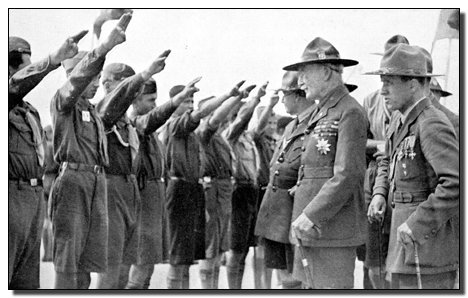

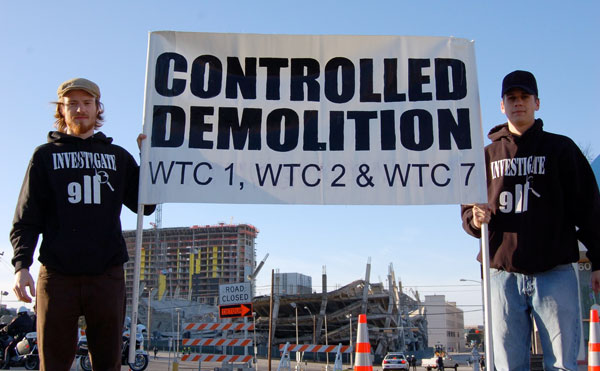

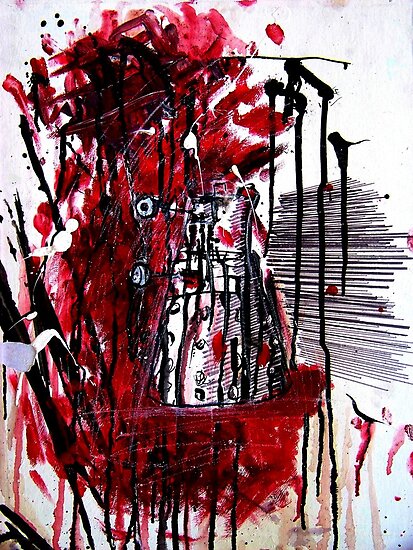














.jpg)









